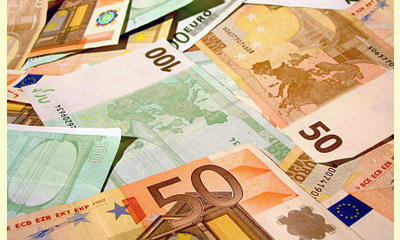|
|
World’s First Green Bank Loans $1 Billion in First Months
un article par Beth Buczynski, Care2
The British Green Bank, a new lending institution
exclusively for clean energy projects, opened
recently and has already loaned to 11 projects
aimed at climate change. Publicly funded by the
Conservative government, it challenges other
governments to consider doing it too.

click on photo to enlarge
Over the years, “green” has become a ubiquitous and
practically meaningless term. We’ve got everything
from green dry cleaners to “eco-friendly” plastic
water bottles. And now, even banks are jumping on
the green bandwagon.
As we’ve reported in the
past, self-serving rankings of so-called
“green banks” attempt to highlight major banks’
investment in clean energy projects. The problem
is that many completely ignore the fact that these
same financial institutions bankroll fossil fuel
companies at much higher levels.
But what if a powerful bank was really and truly
green, existing solely for the purpose of lending to
clean energy projects? We’re about to find out.
Britain’s Green Investment Bank (GIB) opened a
mere five months ago, but has already made a big
splash in that country’s green energy economy.
Capitalized with 3 billion pounds of government
money, the institution exists only to bankroll
renewable energy development and has already
allocated 635 million pounds ($988 million) to 11
promising projects.
It’s all part of Britain’s goal to drastically cut
its carbon emissions by 2020. The bank is mandated
to deploy at least 80 percent of its capital to
offshore wind, waste recycling and energy from
waste, on-domestic energy efficiency and support
for the Government’s Green Deal. The balance of
its capital can be deployed to “non-priority”
sectors, such as biofuels, biomass power, carbon
capture & storage, marine energy and renewable
heat. In doing so, the bank is kick-starting an
economic re-birth based on clean energy instead of
fossil fuels, creating jobs itself and encouraging
investment in other companies doing the same.
The GIB employs 74 staff and expects to count 100 by
the end of the year, reports Reuters. “The bank said
its own investments unlocked an additional 1.7
billion pounds of third-party lending.”
What does this mean? Well, by giving clean energy
companies the financial boost they needed to prove
viability, private investors are less afraid to
add their own money to the pot. “A 100 million
pound loan to UK power producer Drax, for example,
resulted in another 890 million pounds in lending
from other parties for a project to transform half
of its coal capacity to burn biomass instead.”
For now, the bank is publicly funded until 2015.
The amount of taxpayer money that the GIB will
receive in the coming years will be determined at
the next government spending review, reports Inhabitat. But bank
officials feel encouraged by its five-month track
record, and they have confidence that it will be
financially credible before that deadline.
[Note: Thank you to CPNN reporter Janet Hudgins, who obtained permission to reprint this article.]
|








|
DISCUSSION
Question(s) liée(s) à cet article:
A Second, Green Industrial Revolution: How could it come about?,
* * * * *
Commentaire le plus récent:
Thanks Tony for posting this interesting, and optimistic message. I especially liked his comment that " we look at the sites as if we were a migrating bird: We work from the sky into the earth.
He asks "when do we become solar?
One of the peace keys is to preserve the planet, and another is to share with others. This example of cooperation rather than competition is once indication that the culture of peace is taking hold.

|
|









